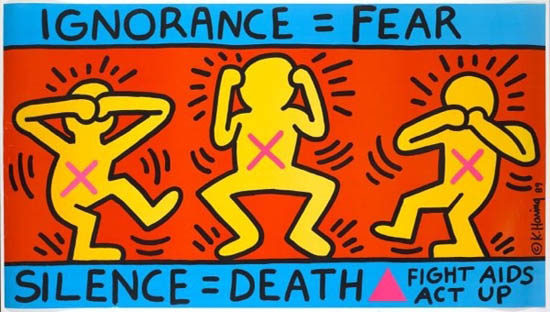Open Call for Younger Generation – English version below
Qualche giorno fa si è concluso HIV Glasgow Drug Therapy Congress, uno degli appuntamenti più importanti su HIV e terapie antiretrovirali, che ha visto la partecipazione di numerosi medici, ricercatori, scienziati ed attivisti da tutto il mondo.
Ora sono ancora in Scozia, chiuso in una stanzetta, in un appartamento vicino al centro di Edimburgo, ed ho finalmente il tempo per pensarci su.
A Glasgow, prima ancora del congresso, c’è stato il primo modulo di Step-Up EATG Training Academy: una formazione internazionale riservata ad una ventina di giovani attivisti precedentemente selezionati fra circa 270, provenienti da 19 Paesi, dall’Azerbaijan al Portogallo, passando per la Grecia e la Russia. Per l’Italia, ci sono 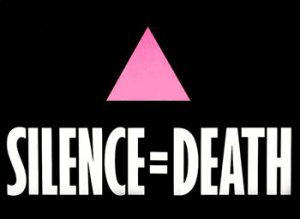 andato io.
andato io.
I problemi da affrontare per fermare l’epidemia di HIV sono tanti e si innestano sulle realtà sociali, economiche e culturali più disparate. Tuttavia, una cosa è uguale dappertutto: la discriminazione genera paura, e dalla paura nasce il silenzio. Come abbiamo imparato dagli anni di Act-Up, “Silenzio=Morte“.
Nel nostro Paese lo stigma nei confronti delle persone sieropositive non solo è molto presente, ma spesso è più forte proprio all’interno delle comunità di appartenenza.
Non ho vissuto l’era dell’AIDS, o almeno non da adulto sessualmente attivo. Gli anni ’80 -quelli in cui molti di noi hanno perso compagni, amici, amanti, parenti- sono lontani e fortunatamente le cose stanno cambiando. Tuttavia, prendere le distanze da quel momento storico pare anche voler dire, soprattutto all’interno della nostra sgangherata comunità LGBTQ, prendere pericolose distanze anche da quell’interesse vivo e da quella coesione che hanno alimentato le nostre battaglie di allora, dall’impegno che oggi ci permette di vivere a lungo e bene con HIV.
Io ho quasi trent’anni, e, guardando alla mia generazione, ma soprattutto a quelle successive, vedo il vuoto.
Si può dire, senza il timore di sbagliare, che noi nati negli anni ’80 ci occupiamo poco di HIV. Siamo mediamente disinteressati. E tremendamente ignoranti. La mia generazione sembra pensare che la lotta all’HIV sia semplicemente mettere il preservativo e/o criminalizzare il sesso occasionale, che si tratti di un’infezione che colpisce esclusivamente tossici, puttane e froci. Insomma, una specie di punizione divina che si abbatte su tutti quelli che sono sbagliati, moralmente inaccettabili, lontani da noi e dal nostro perbenismo. Così, le nuove infezioni aumentano, ovviamente il virus non fa discriminazioni, ma il silenzio rimane denso, pesante.
Commetto talvolta l’errore di pensare -mi è capitato molto spesso, in questi giorni, partecipando ai workshop di EATG insieme a tanti altri ragazzi come me- che noi siamo il futuro della nostra società, e che faremo bene, che miglioreremo le cose, un giorno.
Sbagliato: il futuro sono quelli molto più giovani di noi. Noi siamo già il presente ed abbiamo il preciso dovere di darci una mossa, di lavorare per le persone, di impegnarci per un cambiamento culturale profondo che abbia l’immaginario come centro.
Questa battaglia la vinceremo solo se ci rendiamo conto che non sarà unicamente la medicina a 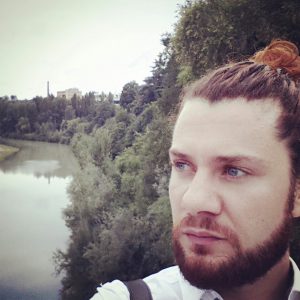 salvarci, che cambiare completamente punto di vista ha una grandissima importanza. Bisogna fare prevenzione, informazione, difendere i diritti di tutti, garantire l’accesso alle terapie. Ma bisogna anche e soprattutto inventare nuovi linguaggi, allargare gli orizzonti, imparare ad includere, a non giudicare, a riflettere in profondità, a mettersi in discussione, ad essere più vicini all’umano, al dolore, alla paura, alla speranza e alla voglia di farcela. Oggi più che mai dobbiamo fare cultura, dobbiamo fare arte, dobbiamo scrivere, dobbiamo cantare, per arrivare domani dove non siamo arrivati fino ad oggi.
salvarci, che cambiare completamente punto di vista ha una grandissima importanza. Bisogna fare prevenzione, informazione, difendere i diritti di tutti, garantire l’accesso alle terapie. Ma bisogna anche e soprattutto inventare nuovi linguaggi, allargare gli orizzonti, imparare ad includere, a non giudicare, a riflettere in profondità, a mettersi in discussione, ad essere più vicini all’umano, al dolore, alla paura, alla speranza e alla voglia di farcela. Oggi più che mai dobbiamo fare cultura, dobbiamo fare arte, dobbiamo scrivere, dobbiamo cantare, per arrivare domani dove non siamo arrivati fino ad oggi.
Al di fuori della comunità, l’amore delle persone sieropositive piace solo se è drammatico, tormentato, sacrificale.
C’è un morboso attaccamento al feticcio della morte, all’estetica dell’ineluttabile, dello struggimento. Sembriamo non essere capaci di cogliere il cambiamento dei tempi -del resto nel nostro Paese è così un po’ per tutto- e delle dinamiche che si realizzano qui ed ora.
Di tutte le buone novità -dei risultati degli studi scientifici che evidenziano l’efficacia delle terapie nella prevenzione, della possibilità di vivere serenamente relazioni sierodiscordanti (in cui solo uno dei due partner è sieropositivo), di quanto stia diventando semplice testarsi più spesso e più velocemente- non vogliamo sentirne parlare.
Ci basta continuare a trattare l’argomento superficialmente, o non trattarlo affatto, per tenerlo 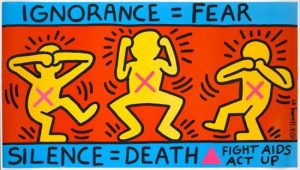 nel suo mondo, quello delle cose che capiteranno sempre agli altri, ma mai a noi.
nel suo mondo, quello delle cose che capiteranno sempre agli altri, ma mai a noi.
Il tema HIV/AIDS ci piace solo se continuiamo a riferirci ad un’epoca ormai trascorsa, in cui una diagnosi di sieropositività era una sentenza assoluta, che scivolava poeticamente verso il martirio. Questa forma di discriminazione, subdola e buonista, è la peggiore di tutte, perché si nutre di un pregiudizio compiaciuto e apparentemente legittimato, nascosto senza troppa grazia o furbizia dietro un dito.
Quello che io ho voglia di dire -dal favoloso mondo che sta dietro al mio dito medio perennemente alzato- è: io sono sieropositivo.
Non voglio più avere paura di dirlo.
Dobbiamo farlo tutti, insieme, a gran voce, perché siamo qui, siamo vivi e stiamo bene e non abbiamo bisogno di condurre esistenze sotterranee.
Questa è una chiamata, è un appello, rivolto soprattutto ai miei coetanei ed ai più giovani: lavoriamo duro, incontriamoci, scambiamo opinioni, acculturiamoci, cresciamo insieme.
Ce n’è un gran bisogno e farebbe bene davvero a tutti.
Per quanto mi riguarda, il tempo del mio silenzio è finito oggi.
Paolo Gorgoni
Plus onlus
Open Call for Younger Generations
A few days ago HIV Glasgow Drug Therapy Congress came to its end. It is one of the most important events about HIV and Anti-Retroviral Therapies, attended by several physicians, researchers, scientists and activists from all over the world. Now I am still in Scotland, stuck in a small room, in a tiny flat close to the centre of Edinburgh, and I can finally think about it.
In Glasgow, before the congress, there was the first module of STEP-UP, EATG Training Academy: an international education programme attended by about 20 young activists previously selected among 270 applicants, coming from 19 different countries.
I was there as a delegate from Italy.
The issues we have to cope with in order to stop the HIV epidemic are many and grafted onto the most disparate social, economic and cultural realities. However, something seems to be the same everywhere: discrimination generates fear, and fear creates silence. As we should have learnt from the early years of Act-Up: “Silence=Death”.
In our Italy, stigma against HIV-positive people is not just strong and common: it becomes even more severe among people who belong to the same communities.
I haven’t lived through the dawn of the age of AIDS or, at least, not as a sexually active adult. The 80s—when many of us experienced the loss of mates, friends, lovers, and relatives—are far away now and, fortunately, things are changing. However, moving away from that era, especially within our rickety LGBTQ community, seems to mean moving away from the lively engagement and deep cohesion which led us to the victory of most of our battles then, and which now let us live longer and well with HIV.
I’m almost 30 and, if I look at my generation and, even more so, at younger ones, what I see is VOID.
We can say, with no fear of being wrong, that we—those of us who were born in the ’80s—take a very little interest in HIV. We are basically uninterested. And freaking ignorant. My generation seems to believe that fighting HIV is just wearing a condom and/or criminalizing people who don’t and casual sex in general; we seem to believe that the infection targets exclusively whores, fags and drug users. It is seen as a sort of divine punishment for all those who are wrong, morally unacceptable, far from us and from our so-called “respectability”. So, new infections rise. Of course, this virus makes no discrimination, but silence remains heavy, dense.
Sometimes I make the mistake—actually, it happened a lot in these past few days, while I was attending EATG’s workshops with many brilliant young colleagues—of thinking that we are the future of our society, that we will do it well, that we will improve the situation, one day.
WRONG! The future is made of people who are still way younger than us. We are the present, and we have the clear obligation to get a move on, to work for people, to be engaged in a deep cultural change that has its focus in the personal imagery. Now.
We will win this battle only if we realize that drugs are not the salvation (even though they are crucial) and that a radical change in our point of view is extremely important. Prevention is needed and so is good information, the defence of everybody’s rights, the universal access to therapies. But we also need to be closer to the human beings, to their sorrow, to their fears, to their hopes, to their will to succeed.
Today, more than ever, we must produce art, we must write, we must speak, we must sing, in order to reach tomorrow those goals we haven’t achieved yet.
Outside the community, the love of people with HIV is appreciated and considered only if it is dramatic, tormented, sacrificial.
There is a morbid attachment to the fetish of death, to the unhealthy aesthetic of the ineluctable, of the yearning.
Apparently, we are not ready to take in the ongoing mutations—actually, in our country, everything works this way—to realize what is happening here and now.
There is plenty of good news: the results of scientific studies showing how effective new drugs are as a tool for prevention (so-called PrEP), the chance to live peacefully and safely in a serodiscordant relationship (where only one of the partners is HIV positive), the opportunity of getting easier and faster HIV testing. But we don’t really want to hear about.
We’d rather keep on covering these topics superficially, or ignoring them, to keep them in their own secret world, as one of the bad things that can happen to somebody else but NEVER EVER to us.
We like the HIV/AIDS issue if we are still allowed to refer to a past age, in which a diagnosis was an absolute sentence, poetically gliding to martyrdom.
This form of discrimination, subtle and do-gooder, is the worst because it’s fed by a self-satisfied (and apparently legitimate) prejudice, hidden with no grace or foxiness behind a finger.
What I long to say—from the fabulous world existing behind my constantly raised middle finger—is: I am HIV positive.
I will no longer be afraid of saying this.
We all should do it, together, out loud, because we are here, we are alive, we feel good and we don’t need to lead our lives underground.
This is an open call, an appeal, addressed to my peers and, overall, to younger people: let’s work hard, let’s meet, let’s exchange ideas and opinions, let’s educate ourselves, let’s grow old together.
There is a big need of this, and it would be good for all of us.
As for me, the time of silence is over, today.
Paolo Gorgoni



